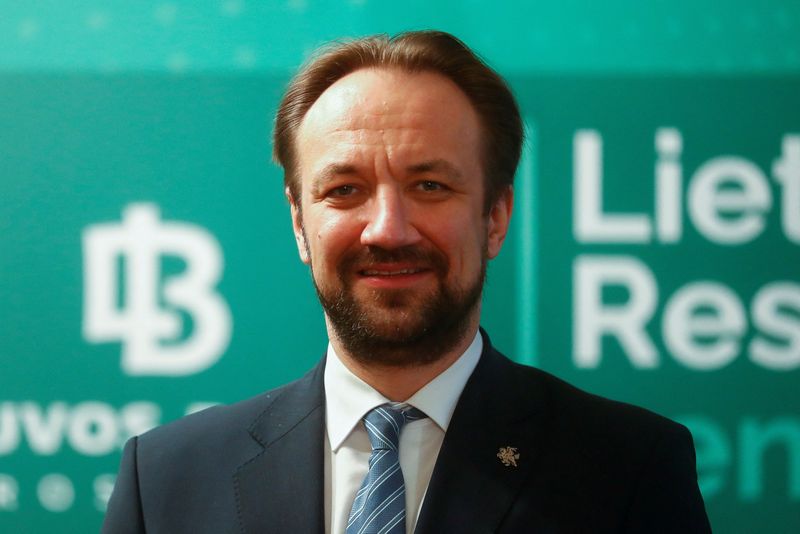VILNIUS (Reuters) - The likelihood of a euro zone recession is rising but the European Central Bank needs to keep raising interest rates as inflation remains high and projections may even need to be raised, Lithuanian policymaker Gediminas Simkus said on Friday.
The ECB on Thursday doubled its deposit rate to 1.5% to fight inflation which is now five times its 2% target, and said that further policy tightening is necessary to prevent rapid price growth from getting entrenched.
The ECB sees inflation falling back to 5.5% in 2023 but Simkus said models are struggling to calculate the effects of one-off shocks so they have been underestimating price pressures.
"It seems they will be revised upwards again, especially for next year," said Simkus, who sits on the rate-setting Governing Council.
Simkus also suggested that growth forecasts may need to be cut to account for a recession, as the bloc struggles with sky high energy costs.
"The likelihood that the euro zone enters a technical recession has grown," Simkus said.
With inflation far too high, the ECB said it would start talks in December on how it could wind down 3.3 trillion euros ($3.28 trillion) worth of bonds, mostly government debt, held in its Asset Purchase Programme.
While ECB chief Christine Lagarde did not provide any further guidance on what the upcoming discussion should focus on, Simkus said a start date should be a key item on the agenda.
"I think this is what the discussion should be about: possible start date, possible amounts, and how this would be done," Simkus said.

The ECB currently reinvests all cash from bonds maturing in the scheme and the expectation is that instead of outright bond sales, the ECB would wind down the debt pile by not reinvesting all funds.
($1 = 1.0048 euros)